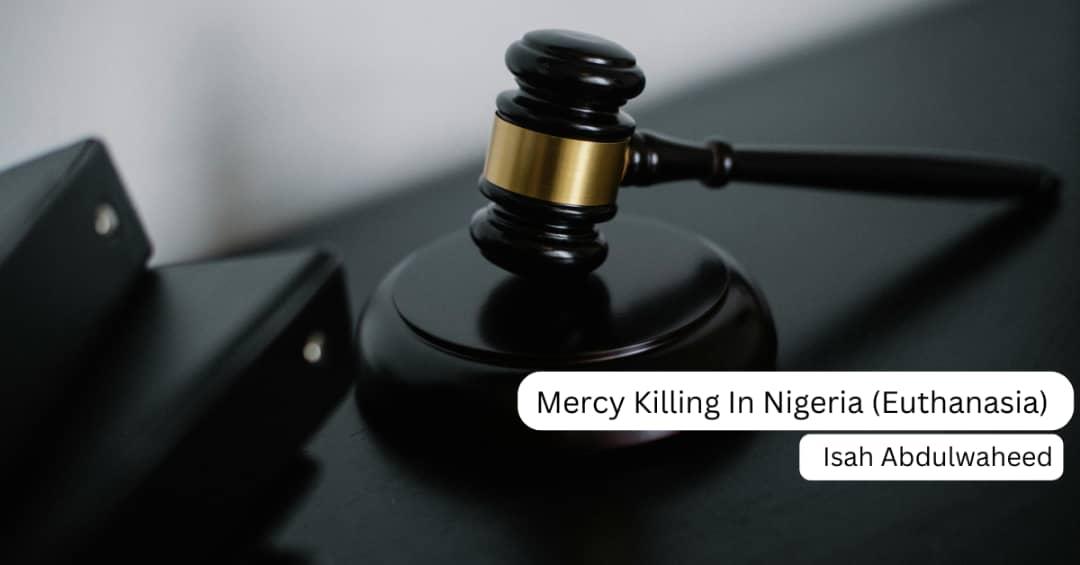Mercy Killing In Nigeria (Euthanasia)
Anthony David Bland, an 18-year-old Liverpool supporter, journeyed with two friends to Sheffield Wednesday’s Hillsborough football ground for an FA Cup semi-final between Liverpool and Nottingham Forest on April 15, 1989. Tragically, a collapse of the stadium due to poor crowd control by the police and overcrowding led to the deaths of 94 people that day, with 95 more victims hospitalized in the days following. Among them, Bland suffered crushed ribs and two punctured lungs, which, in turn, disrupted the oxygen supply to his brain, resulting in irreversible damage that left him in a persistent vegetative state. Though devoid of sensory perception, his brain stem, responsible for reflexive bodily functions such as heartbeat, breathing, and digestion, continued to operate. Medical consensus maintained that while Bland remained biologically alive, he would never recover from his vegetative state.
The medical team overseeing Bland, in consultation with his parents, concluded that prolonging his medical care served no meaningful purpose. Consequently, they determined it appropriate to cease artificial feeding and other life-sustaining measures. Although unanimous in their prognosis that Bland would never emerge from his vegetative state, legal ambiguity persisted regarding the cessation of treatment. In November 1992, the Court ruled that doctors could withdraw treatment at the family’s behest in cases where recovery was deemed impossible. As such, on March 3, 1993, Bland, aged 22, was permitted to pass away peacefully, a decision often referred to as “mercy killing.”
The fundamental question arises: Have you ever witnessed a loved one succumb to an incurable illness, languishing in hopeless suffering, prompting a wish for their peaceful release from agony?
Horace once proclaimed, “to save a man’s life against his will is the same as killing him.”
Euthanasia, also known as “mercy killing,” stands as a contentious issue, eliciting robust arguments from both sides of the ethical divide. Advocates maintain that enabling terminally ill individuals to end their lives with dignity constitutes an act of compassion, while opponents argue vehemently against the moral and legal implications of such actions.
What is Euthanasia?
Etymologically derived from the Greek “euthanatos,” meaning “easy or happy death,” euthanasia embodies the concept of a peaceful end. For clarity, “Eu” connotes “easy or happy,” while “Thanatos” signifies “death.”
In pronunciation, euthanasia sounds akin to YOUTH-IN-ASIA.
Defined by the Black Law Dictionary as the act or practice of expediting the death of individuals suffering from incurable or terminal diseases, especially those causing immense pain, euthanasia finds its roots in notions of mercy¹.
The Oxford Dictionary characterizes euthanasia as the deliberate painless killing of individuals afflicted with incurable ailments.
Bamgbose further delineates euthanasia as the deliberate taking of human life, either directly or with assistance.
Types of Euthanasia
Voluntary Euthanasia
In this form of euthanasia, a patient explicitly requests a doctor to terminate their life. The patient possesses the requisite understanding of their decision and its ramifications, demonstrating maturity, sanity, and competence. Often, the patient may have conveyed their consent through an advance directive before becoming incapacitated or unconscious.
Countries such as Australia, Canada, Colombia, Belgium, Spain, New Zealand, Luxembourg, and Switzerland have legalized voluntary euthanasia.
Involuntary Euthanasia
Contrary to voluntary euthanasia, involuntary euthanasia entails the termination of a patient’s life without their explicit consent. This action is typically not due to the patient’s incapacity or unconsciousness but rather based on the doctor’s belief that it is in the patient’s best interest. In most legal jurisdictions, involuntary euthanasia is vehemently opposed and regarded as a criminal offense.
Non-Voluntary Euthanasia
Under non-voluntary euthanasia, the patient’s life is ended with the consent of their relative or guardian. This occurs when the patient is unable to provide consent due to unconsciousness or mental incapacity. An illustrative scenario is that of a newborn baby suffering from an incurable disease, where the parents may authorize the termination of the baby’s life.
Passive Euthanasia
This variant of euthanasia involves the deliberate cessation of a patient’s life by a doctor, solely for the patient’s benefit. It entails actions such as the deliberate cessation of respirators, discontinuation of medications, and withholding of food and water to allow the patient to dehydrate or starve to death. Passive euthanasia is also known colloquially as “pulling the plug.”


Leave a Reply